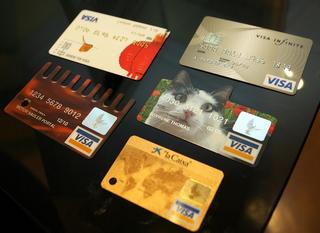A growing number of online companies are ambushing competitors through software that puts ads where marketers want them most--in front of customers visiting rival Web sites.
Published:
7 August 2001 y., Tuesday
It's called getting "Gatored," after one of the most popular applications underlying it, and some Web sites are out to restrict the practice. But for others it's fast becoming an effective way to feast on competitors in their own front yard.
One e-tailer that's been bitten is 1-800-Flowers.com. When certain Web surfers visit the site to browse for bouquets, a pop-up ad appears for $10 off at chief rival FTD.com. The same sort of thing happens at AmericanAirlines.com, where a Delta Air Lines promotion is waiting in the wings.
Ads like these find their way onto browser windows through "plug-ins" that come bundled with certain software downloads. Several companies are behind the practice, including the eponymous Gator.com.
One online executive referred to Gator and other such programs as "hijackware," applications that easily whisk consumers from a point of sale at one site to a competitor’s site.
Gator is a so-called online helper application that has millions of active users and manages passwords and user IDs. While Gator is free, the company that makes it sells keywords to marketers that lets them launch pop-ups at opportune moments--for example, when a Web surfer visits a competing site.
Redwood City, Calif.-based Gator is quickly adding a new spin to the old ploy of selling ad space linked to trademarks and company names. Pioneered by search engines and Net directories, the practice lost momentum after some big brand advertisers cracked down with boycotts and trademark lawsuits. One case involving Playboy Enterprises, scheduled for trial next month in Los Angeles, could help set guidelines over the legality of the practice.
Fears about control of keywords have resurfaced recently, with critics pointing to blurring lines between content and advertising on the Web. In one extreme example, San Francisco-based eZula has been working with file-sharing networks Kaazaa and iMesh to superimpose links to marketers' sites over text on Web pages.
But including links to preferred Web destinations could rally a cry of foul play. Microsoft last month pulled--at least temporarily--Smart Tags from Internet Explorer 6. The Extensible Markup Language (XML) feature let Web surfers use pull-down menus to obtain additional information about select content. A Smart Tag under CNET, for example, might have linked to Microsoft's MSN MoneyCentral Web site for stock quotes and other information.
Šaltinis:
CNET News.com
Copying, publishing, announcing any information from the News.lt portal without written permission of News.lt editorial office is prohibited.
The most popular articles
Software company announced new structure_ of it_s business.
more »
 The iPhone's new “ATM Hunter” is a a free iPhone application built by MasterCard that allows users to quickly find the ATMs that are closest to them.
more »
The iPhone's new “ATM Hunter” is a a free iPhone application built by MasterCard that allows users to quickly find the ATMs that are closest to them.
more »
 In security breach cases last year, such as Hannaford Bros. supermarket and the card processing firm Heartland Payment Systems, cybercriminals gained access to millions of consumers' credit card details.
more »
In security breach cases last year, such as Hannaford Bros. supermarket and the card processing firm Heartland Payment Systems, cybercriminals gained access to millions of consumers' credit card details.
more »
 Ingenico, a provider of payment solutions, says contactless technology will split the retail market this year, improving sales figures for early adopters and costing those who shun the additional investment in this burgeoning technology.
more »
Ingenico, a provider of payment solutions, says contactless technology will split the retail market this year, improving sales figures for early adopters and costing those who shun the additional investment in this burgeoning technology.
more »
 Widevine Technologies today announced that the US Patent and Trademark Office has reconfirmed the validity of many claims of Widevine's U.S.
more »
Widevine Technologies today announced that the US Patent and Trademark Office has reconfirmed the validity of many claims of Widevine's U.S.
more »
 Nokia Corp., the world's largest maker of cell phones, is making a large investment in California-based Obopay Inc., a startup that's pushing person-to-person mobile-payments technology.
more »
Nokia Corp., the world's largest maker of cell phones, is making a large investment in California-based Obopay Inc., a startup that's pushing person-to-person mobile-payments technology.
more »
 The increasing amount of overlap and duplication of data, tasks and processes in their anti-fraud and anti-money laundering divisions is driving banks to seek synergies between compliance, risk management and security, according to a new report from Datamonitor.
more »
The increasing amount of overlap and duplication of data, tasks and processes in their anti-fraud and anti-money laundering divisions is driving banks to seek synergies between compliance, risk management and security, according to a new report from Datamonitor.
more »
 The total number of IPTV subscribers worldwide passed the 20mn mark at the end of 2008, according to new figures from Informa Telecoms & Media, taking into account both disclosed and estimated figures.
more »
The total number of IPTV subscribers worldwide passed the 20mn mark at the end of 2008, according to new figures from Informa Telecoms & Media, taking into account both disclosed and estimated figures.
more »
 The IPTV World Forum opened its doors this morning on a bright London day, and the mood was equally optimistic indoors, with the conference rooms packed for keynote presentations from Christopher Schläffer of Deutsche Telekom, Christophe Forax from the European Commission and the BBC's Richard Halton, charged with making Project Canvas a reality.
more »
The IPTV World Forum opened its doors this morning on a bright London day, and the mood was equally optimistic indoors, with the conference rooms packed for keynote presentations from Christopher Schläffer of Deutsche Telekom, Christophe Forax from the European Commission and the BBC's Richard Halton, charged with making Project Canvas a reality.
more »
 A new Gartner Inc. report suggests that financial fraud could drive consumers away from banks and into the arms of electronic payment systems, such as PayPal, that they perceive to be more secure.
more »
A new Gartner Inc. report suggests that financial fraud could drive consumers away from banks and into the arms of electronic payment systems, such as PayPal, that they perceive to be more secure.
more »
 In the last year this more than doubles the number of cards and devices in circulation around the world.
more »
In the last year this more than doubles the number of cards and devices in circulation around the world.
more »